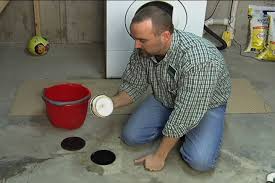Preventing Sewage Back-Up

Sewage back-up can result from a number of different causes. In most cases, it is caused by flooding or heavy rain events, however, it can also be a result of broken or cracked pipes. No matter the cause, the damage can be devastating, possibly dangerous to your health and safety, and in some cases very expensive. Being prepared and responding quickly often minimizes the damage potential. It’s always best to try to have a plan in place for preventing sewage back-up. Below are a few suggestions for sewage prevention.
Plugging Floor Drains and Other Fixtures
If sewage starts to back up in a home or business from the floor drains, it is possible to plug these drains. These are often at the lowest point in the home or business and may be the first point of entry for sewage back-up. After plugging the floor drains, if the water level gets high enough, it can overflow toilets, bath/showers and other fixtures.Purchase plugs from a hardware store to close off these drains during heavy rains; it’s an easy and cost effective way of preventing sewage back-up. As a note of caution, only plug these drains if the condition of the sewage piping is known to be strong and tight. Otherwise, there can be a build up of water pressure strong enough to rupture the pipes or even cause floor damage in basements.
Be Aware of What Goes Down Your Drain
A more responsible solution to sewage prevention is knowing what should and should not be put down the drain. The following are just a few things that should never go down your drain:
- Grease
- Disposable diapers or hygiene products
- Wet wipes
- Paper towels
- Long hair
Large Trees Growing Around Sewage Lines
Trees often grow large roots deep into the ground that cause movement and breaks in your pipes. It’s important to check nearby sewage lines and determine whether CIPP repair is in order. With timely inspections, you may be lucky enough to have them moved before the roots take over. This is typically a more costly form of sewage prevention, but will definitely worth it for years to come.
As you can see, there are many different things that can cause sewage back up, but with a little time and attention, there are certainly plenty of solutions for preventing sewage back-up as well. Prevention is the best way to go to keep you from the cost and time of a CIPP repair in the future.